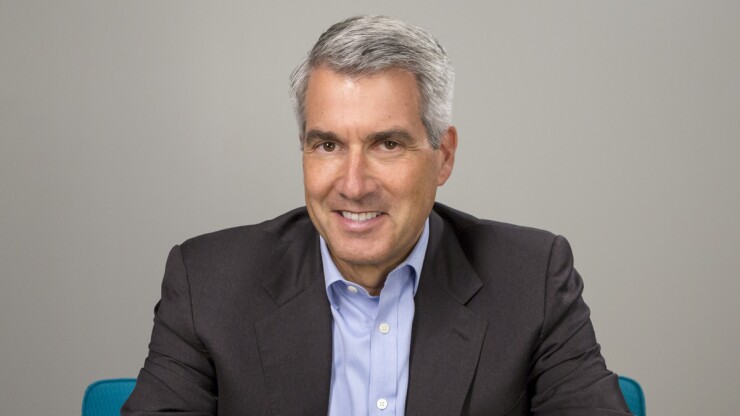- For more content like this, from the industry leader in global payments coverage, please visit
PaymentsSource.com .
Discover Financial Services executives say they will cautiously approach new acquisitions and technology or marketing investments, despite an upbeat
Discover will instead focus on meeting the tech needs of its current base and beyond, evidenced by this week's expansion of the card brand's fee-based identity theft service to all U.S. consumers.
Citing "an insatiable demand" for data analytics from Discover and its customers, Discover CEO and President Roger Hochschild said the Riverwoods, Ill., company will continue to weigh the effectiveness of technology and its potential for return on investment as the pandemic eases.
"On the investment side, a lot of those are on capabilities in the data and analytics area to enhance all parts of our operations, whether it is credit underwriting, the marketing targeting, personalization, collections and others," Hochschild said Thursday during Discover's earnings call.
After reviewing the ROI profile on any potential move, Hochschild noted much of the decision-making has to do with employee bandwidth and the talent available in each scenario.

On the payments side of the business, Discover continues to benefit from its partnership with Sezzle, which provides interest-free buy now/pay later technology, Hochschild noted in a post-earnings interview with PaymentsSource.
Most lenders are keeping an eye on the BNPL business, and Hochschild said his company is no different, though the trend has not had a major impact on Discover's revolving credit base.
"In many cases it is like traditional sales finance, which has been around forever, but it is just in a different format online now and an extension of private-label" lending, Hochschild said. "The economic model is a bit unproven and, as I talk to retailers, a lot of them are watching it to see if there is any benefit in incremental sales. But over the longer term, they do not want to pay a higher take rate on those transactions than they do on credit cards."
Discover is also monitoring the uptick in mobile payments, and using its proprietary network allows the issuer to optimize services "across the issuer network that is more challenging in a Visa or Mastercard environment," Hochschild noted.
The card brand also continues to improve its mobile app, which was the first to allow its customers to provision Discover cards into the Apple Pay wallet without having to leave the app. "We want to continue to try to leverage that connectivity," Hochschild said.
Given the uncertainty of the past year regarding consumer spending and loans, and the increase in digital commerce and accompanying fraud spikes, Discover executives were happy to be a little off in their past speculation about the effect on the card brand's bottom line.
"Last April, if you had told me that a year into the pandemic we would be reporting excellent credit performance, positive sales trends and solid earnings growth, I wouldn't have believed it," Hochschild said in opening the earnings call.
Discover reported first-quarter net income of $1.6 billion, after reporting a net loss of $61 million a year earlier, on revenue of $2.79 billion, versus $2.88 billion in last year's first quarter. The net charge-off rate on credit loans was 2.48%, compared with 3.27% a year earlier, or 79 basis points lower.
All of those bets are off now, mostly because the unemployment resulting from pandemic shutdowns hit entry-level restaurant and hospitality employees hard and didn't spill over into the white-collar jobs more common to Discover's revolving credit customer base. In addition, the ongoing recovery appears to be such that jobs are slowly coming back for those who were unemployed.
Discover's chief financial officer, John Greene, noted that the card brand has altered its view on the coming year, with the expectation that credit losses are expected to be flat, or even decrease further.
Still, considering that the government pandemic relief stimulus checks helped Discover process more transactions, those payments also helped consumers save money, and that acts as a "headwind" against loan growth, Greene said.
"There is no perfect insight" into 2022 forecasts, "but I will say that the pent-up demand for consumer spending is fairly pronounced and will continue to drive spending activity through this year and well into next year," Greene said. "That, to me, indicates that the macros should be positive through 2022, but beyond 2022 it is really difficult to call at this point."





